How to Stop Windows 11 Update (Block It Forever)
Microsoft has released Windows 11, which provides a calm and creative space where you can pursue your passions through a fresh experience. Although Microsoft has said that it's necessary to keep your Windows 11 updated with the latest features and security patches, for whatever reason, you can disable Windows updates. (Also read: How to check update for Windows 11.)
***Join the hot discussion for fixing Windows 11 cumulative update failed to download and install
How to Disable Windows 11 Update (Full Guide)
Microsoft has already made it clear that the Windows 11 update won't be forced upon Windows 10 users at launch. If you want to check for Windows 11 update, you need to manually go to "Settings > Update & Security > Windows Update".
But some users have enabled Windows automatic updates, they want to block the feature to free up the Windows 11 disk space. Therefore, we provide you with effective solutions to stop Windows 11 automatic updates.
- 1. Turn off Windows Update Services in Windows 11
- 2. Block Windows 11 Update with Group Policy Editor
- 3. Pause Windows 11 Updates for Every Week
- 4. Stop Windows 11 Update with Registry Editor
- 5. Disable Windows 11 Update with Third-party Tool
Notice: Usually, disabling Windows 11 updates will not cause data loss. But if you lose data due to improper operation, stop using your disk immediately and use professional Windows 11 hard disk data recovery software to restore lost data.
Qiling Windows 11 Data Recovery Tool
- Recover deleted files, documents, photos, audio, music, emails in Windows 11/10/8/7.
- Support hard drive recovery, emptied recycle bin recovery, memory card/flash drive recovery, and more.
- Support data recovery in Windows 11, 10, 8.1, 8, 7, XP, Vista, and macOS11.2 - 10.9.
Solution 1. Turn off Windows Update Services in Windows 11
One of the best methods to stop computerized Windows updates is to turn off Windows update services. The steps are easy enough for a beginner.
Step 1. Press "Window + R" to open the Run window.
Step 2. Open the "Services Window" by typing services.msc and hit the "Enter" key.
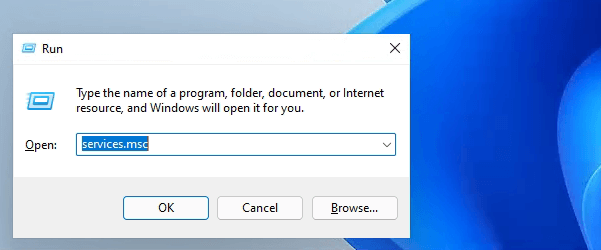
Step 3. Locate and pick the "Windows Update" option from the "Services" list, then click the "Stop" button.
Step 4. Change the "Startup Type" to "Disabled" by clicking on the "General" tab.
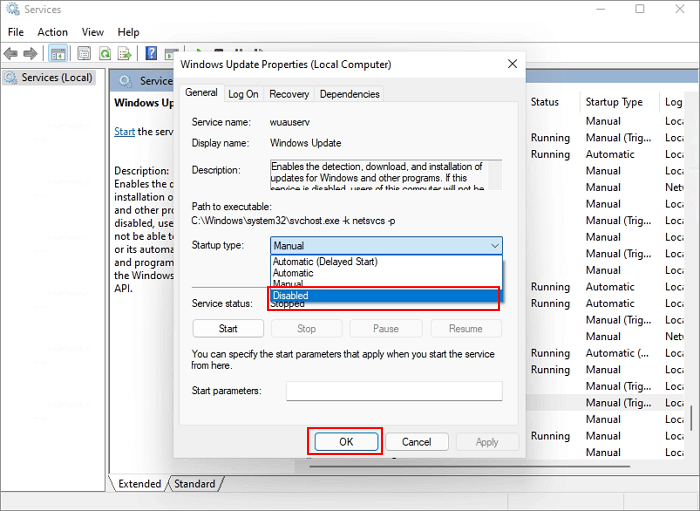
Solution 2. Block Windows 11 Update with Group Policy Editor
If you don't mind delaying the Windows 11 installation, you can disable Windows 11 update with Group Policy Editor.
Step 1. Press Win + R. Type gpedit.msc to load the Group Policy Editor.
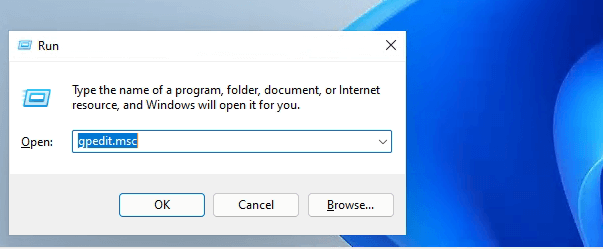
Step 2. Navugate to "Local Computer Policy > Computer Configuration > Administrative Templates > Windows Components > Windows Update > Windows Update for Business".

Step 3. Double-click on "Select the target feature update version".
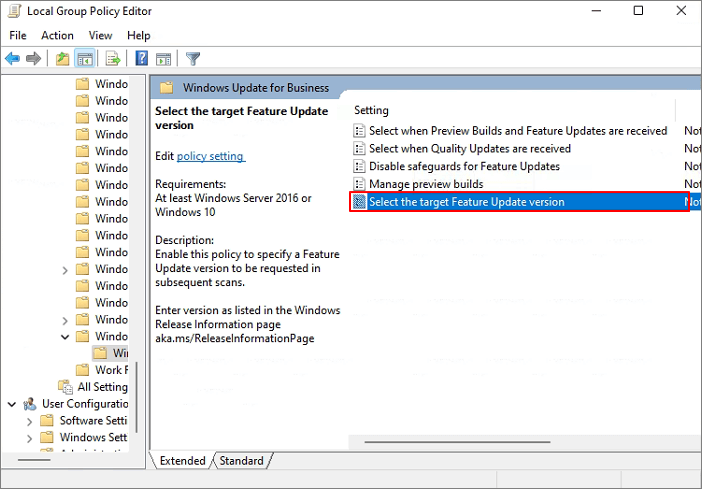
Step 4. Set the policy to "Enabled", type 21H1 into the field, and close the Group Policy Editor.
Solution 3. Pause Windows 11 Updates for Every Week
Another way to disable Windows 11 update is to pause the update every week. To pause Windows 11 computerized updates, follow the steps below.
Step 1. Click the start icon and choose "Settings".

Step 2. Select "Update & Security" and click on "Pause updates for 7 days".
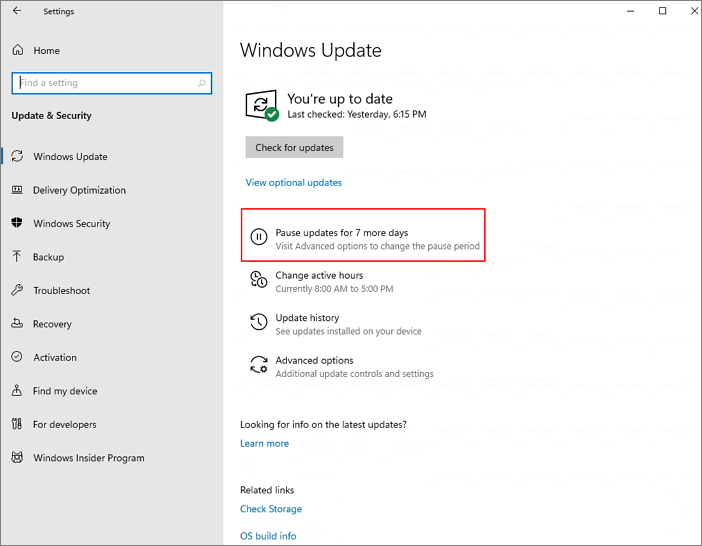
Solution 4. Stop Windows 11 Update with Registry Editor
Step 1. Press Win + R and type regedit.exe to open Registry Editor.

Step 2. Go to "HKEY_LOCAL_MACHINE\SOFTWARE\Policies\Microsoft\Windows\WindowsUpdate".
Step 3. Set the "DWORD (32-bit)" value to 1.
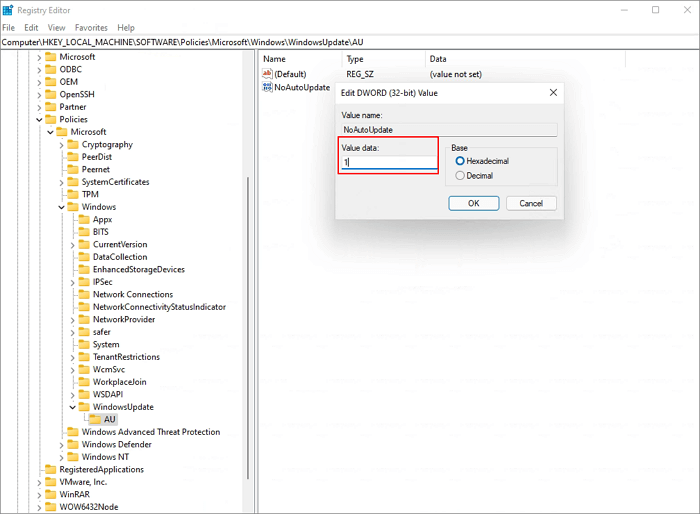
If the value does not exist, right-click on Windows Update, and select New > Dword (32-bit) Value. Then, set the value of TargetReleaseVersionInfo to 21H1.
Solution 5. Disable Windows 11 Update with Third-party Tool
If you are looking for an easy way to stop Windows 11 updates, you can run third-party software - Qiling Clean Genius. With this tool, you can disable windows 11 automatic updates permanently without wasting your time. Run this tool and follow the instructions below.
Do you prefer a one-click solution to disable the Windows automatic update feature? If so, get the versatile toolkit - Qiling CleanGenius to help you. With it, you can disable/enable Windows Update, repair hard drives, remove/enable write-protection, and more within seconds.
To disable Windows Update:
Step 1. DOWNLOAD Qiling CleanGenius for free and install it on your computer.
Step 2. Launch Qiling CleanGenius and go to "Optimization".
Step 3. The tool will detect the status of the Windows Update service automatically. If Windows Update is currently enabled, click the switch to stop the service.
Step 4. If you want to check whether you have disabled the service automatically, go to "Start" > type "Services" > right-click "Services" and choose "Run as administrator".
Step 5. In the list of services, find and right-click "Windows Update" > "Properties". In the "Service status" section, you should see the service has been stopped.

Additional Help - How to Recover Data on Windows 11/10
As mentioned above, you can recover deleted files with Qiling data recovery software. It works well in getting back lost/deleted files on a Windows or Mac PC. Here are the steps to restore data on a Windows 11 PC.
Step 1. Select file types
Launch Deep Data Recovery. Select file types and click "Next" to start.

Step 2. Select a location and start scanning
Choose the partition where you lost data. Then, click "Scan".

Step 3. Filter and preview files
Use the file format filter on the left or upper right corner to find the files you need. Then, you can click the "Preview" button or double-click a file to preview its content.

Step 4. Recover lost data or files
Click the checkbox next to the file and click "Recover" to restore the lost data to a secure place.
Conclusion
I personally like to keep all my devices up-to-date and activate Windows 11 to enjoy the newest features of Windows 11. But Windows updates could be useless sometimes. Keep an eye on what you are downloading and installing on your PC. If you want to disable the automatic update, you can try these solutions above.
Related Articles
- Windows 11 Is Not Activated: How to Activate Windows 11 OS for Free
- Rollback from Windows 11 to Windows 10 - 2 Methods
- [3 Ways] How to Uninstall Apps on Windows 11
- Windows 11 Free Upgrade from Windows 10 [How-to] Step by Step